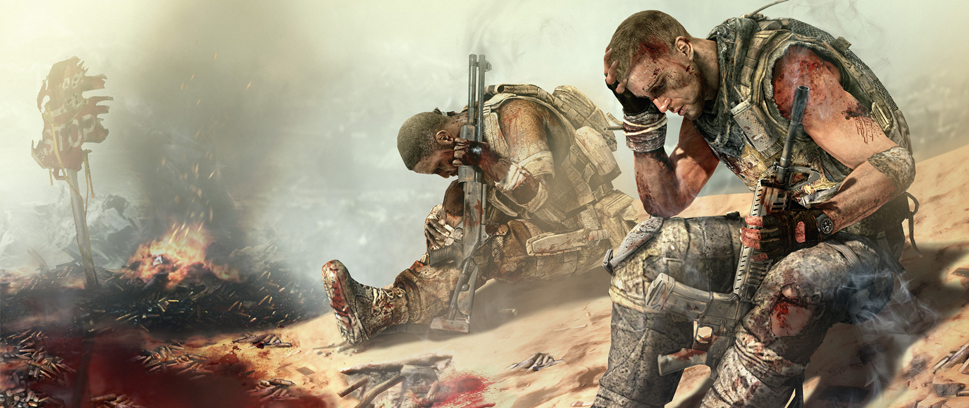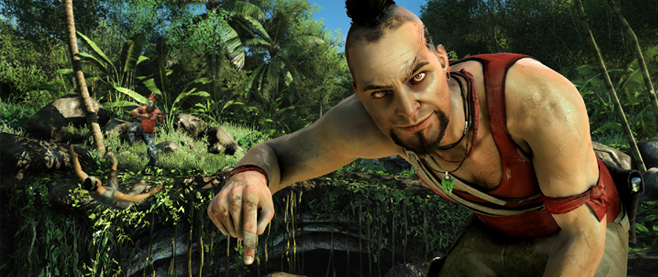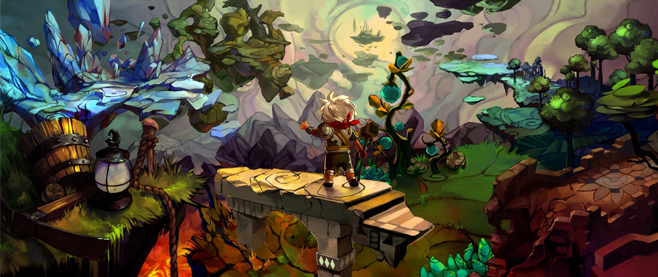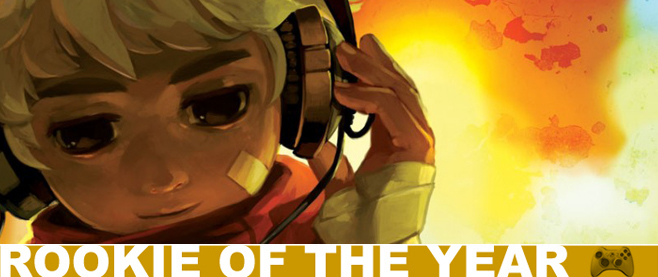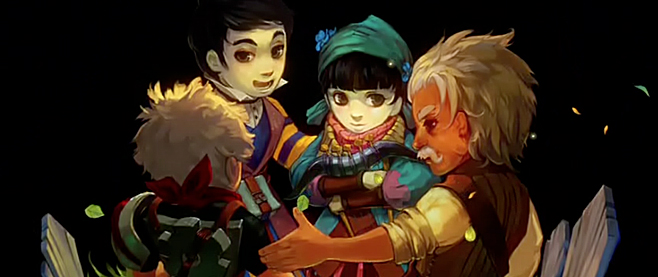
Bastion of the Future: Greg Kasavin Interviewed
In addition to running Unwinnable, I am also the managing editor over at Digital Innovation Gazette, a trade website sponsored by Intel and concerned with the more technical aspects of videogames and their development. During the course of my duties there, I have the opportunity to do the occasional interview and, since DIG has graciously allowed me to syndicate that content, I can now share them with you here in their entirety. Enjoy!
———-
[wpcol_1half id=”” class=”” style=””]
I spoke to Greg Kasavin, former executive editor at GameSpot.com and now creative director at Supergiant Games, where he served as the writer for their auspicious first release, Bastion. Kasavin talks about the shape of the industry, digital distribution and the future of the video game as art.
Unwinnable: Can you tell us about your history in the gaming industry?
Greg Kasavin: I’ve been playing games since as long as I can remember, and started writing about them semiprofessionally fresh from high school. This eventually led me to an internship at GameSpot. I ended up working there for more than 10 years, during which time I worked my way up to editor-in-chief, until I left at the beginning of 2007 to pursue my childhood dream of making games.
I joined Electronic Arts as a producer on Command & Conquer 3 and worked on Red Alert 3 after that, plus a couple of unannounced-and-canceled projects. It was there that I met the guys I’d later join up with at Supergiant Games, where I’m now working as creative director.
Our first game is Bastion, the first title in this year’s Summer of Arcade on the Xbox 360. My job at Supergiant Games is the best job I’ve ever had, since it means I can create original stories for games, which is what I’ve always wanted to do.
Unwinnable: Where do you see the industry going in the near future? Far future?
G.K.: For the moment, the industry will continue down its current downward spiral, which has been causing publishers to panic and developers to lose jobs for several years now. A handful of retail titles will continue selling obscene numbers of copies, but most games simply don’t justify the cost of development at this point. This, in turn, causes publishers to become even more risk-averse.
Smaller independent developers will continue to lay their livelihoods on the line for the sake of their art and will remain the driving force of creativity. They can keep their costs low, and audience demand for original games will always be there. More important, they will continue to infuse gaming with meaningful and memorable experiences. I appreciate that games are a business, but without the art, the business would be nowhere.
[/wpcol_1half] [wpcol_1half_end id=”” class=”” style=””]
The social gaming bubble has burst already, recently and quietly. A handful of these games will continue to be very successful, but as development costs skyrocket, the barrier to entry in that market will become as unreachable as it is in the retail space.
Mobile gaming, meanwhile, is here to stay. The barrier to entry is low here, but I don’t see mobile games as a direct threat to PC and console gaming; the nature of mobile gaming experiences is quite different.
In the far future, I still believe games will emerge as the defining art form of this century. They already are to me.
Unwinnable: What kind of impact do you see digital distribution and independently developed games having on the industry?
G.K.: Digital distribution and independent game development are the silver lining in what’s been a pretty gloomy hardware generation. Digital distribution has allowed smaller developers to bypass retail channels and sell high-quality games directly to customers, who seem to appreciate not just the artistry of these games but also the savings. At this point, the type of quality you can get from downloadable titles often exceeds that of full retail games, not to mention that they cost a fraction of a full retail price.
Since the physical offering of retail games is so poor at this point – they barely even come with instruction manuals anymore – I’m in the camp that thinks the days of the packaged-good game are numbered. I think there will always be room for high-quality physical goods, but I’d be surprised if the next generation of consoles didn’t push hard on the digital distribution front.
Unwinnable: What kind of technology do you see spurring on those changes?
G.K.: Games are not really limited by their technology at this point. The big opportunity right now is for games to offer richer, more meaningful experiences to appeal to broader audiences.
One of the most important roles technology has to play in the game industry at this point is to keep driving development costs down. Whichever digital distribution service has the best user experience is going to win. There are games out there that are falling far short of reaching their potential because the experience around getting games digitally still seems to be in its infancy. Xbox LIVE Arcade and the PlayStation Network offer some of the best games of this generation, but it’s not obvious how to find them or buy them unless you’re an avid game player.
[/wpcol_1half_end]


